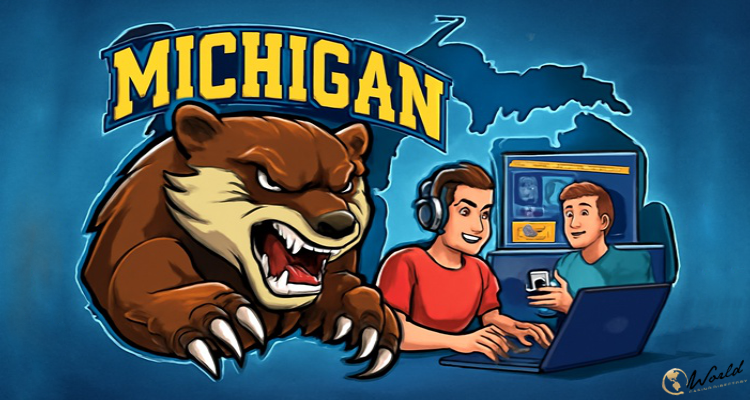Michigan’s online gambling industry set a new milestone in May, as gross receipts from internet gaming (iGaming) and internet sports betting reached an impressive $301.43 million, reflecting a month-on-month increase of 3.7%. This surge marks another record for the state, building on the $290.7 million reported in April. The figures, shared by the Michigan Gaming Control Board (MGCB), confirm a sustained growth trend in both sectors, with a notable contribution from sports betting.
Significant Increase in iGaming Revenue
According to the MGCB report, the iGaming sector in the Wolverine State saw substantial growth, with gross receipts for May totaling $251.47 million—up from $248.1 million in April. This was driven by continued demand for online slots and table games, which generated the bulk of iGaming revenue. The adjusted gross receipts (AGR) for iGaming alone reached $236.2 million, marking a 1.3% increase from the previous month. On a year-over-year basis, iGaming AGR grew by a robust 32.2%, signaling a positive shift in the state’s online casino market.
Sports Betting Performance Improves
In parallel, Michigan’s sports betting sector experienced a significant boost in May. Gross sports betting receipts rose to $49.96 million, up from $42.6 million recorded in April. The adjusted gross receipts for sports betting reached $35.6 million, an increase of 32.9% compared to the previous month. When looking at the year-on-year growth, sports betting AGR surged by 26.6%, further cementing the sector’s popularity and growth potential.
The total sports betting handle for May was $386.1 million, reflecting a 7.6% decrease compared to April’s $417.6 million, but still representing a strong figure in the context of Michigan’s online sports betting landscape. The state continues to experience growth despite the slight dip in handle, with sports betting hold remaining at 12.95%.
Contributions to State and Local Revenues
This growth also translated into a higher contribution to state and local governments. In May, operators reported a total of $51.1 million in state taxes and payments, with iGaming taxes making up $49.1 million and sports betting taxes contributing $2 million. Additionally, the City of Detroit received $13.35 million in wagering taxes and fees from the city’s three commercial casinos, of which $12.7 million came from iGaming.
Tribal operators also played their part, contributing $5.8 million in payments to their respective governing bodies.
Unlicensed Gambling Crackdown Intensifies
Despite the industry’s overall success, the Michigan Gaming Control Board has continued its efforts to combat illegal gambling operations. The MGCB issued cease-and-desist orders to five unlicensed gambling platforms that were reportedly targeting Michigan residents with online casino games and sports betting services. The platforms—BoVegas Casino, BUSR, Cherry Gold Casino, Wager Attack Casino, and Lucky Legends—were accused of violating several state laws, including the Michigan Gaming Control and Revenue Act, and have been given a 14-day period to comply..
If these operators do not adhere to the cease-and-desist orders, the MGCB has warned that it will pursue legal action in collaboration with the Michigan Department of Attorney General. The Board has already targeted several other unlicensed platforms, including offshore entities like BetUS and Bovada.
The MGCB’s proactive stance highlights the state’s commitment to maintaining a regulated and secure gambling environment, ensuring that players are protected from the risks associated with unlicensed operators.



